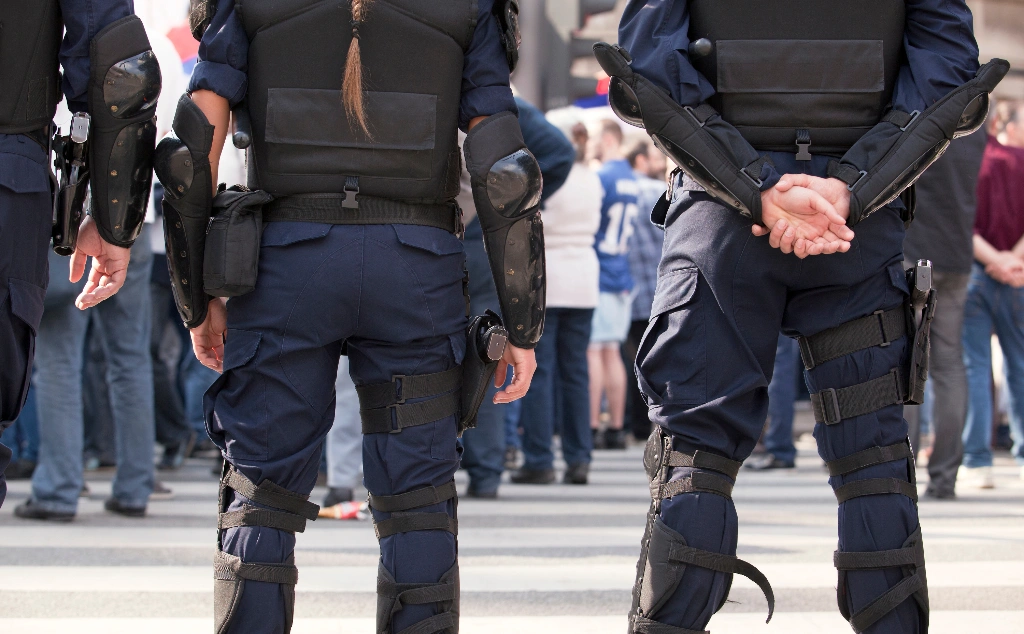In a world where safety is increasingly becoming a top priority for both individuals and organizations, the demand for professional security services has never been higher. While standard unarmed guards are sufficient for many low-risk scenarios, certain environments—such as financial institutions, high-profile events, government facilities, and volatile work sites—require a more robust approach. This is where armed security guards come in.
These highly trained professionals play a pivotal role in managing threats, deterring criminal activity, and ensuring the protection of people and property. In this blog post, we’ll explore the responsibilities, training, and importance of armed security guards in high-risk environments, shedding light on why their presence is vital in today’s security landscape.
1. Understanding the Duties of Armed Security Guards
Armed security guards are not just individuals who carry firearms. They are extensively trained experts responsible for:
- Preventing unauthorized access to restricted or high-value areas.
- Deterring criminal activities through a visible and authoritative presence.
- Responding rapidly to active threats, such as armed intruders or dangerous individuals.
- Monitoring security systems and conducting regular patrols.
- Providing immediate assistance in emergency situations until law enforcement arrives.
In many cases, the mere presence of an armed guard can dissuade a potential criminal from acting. However, if action is required, these professionals are prepared to handle the situation efficiently and lawfully.
2. The Importance of Armed Security in High-Risk Environments
Some environments are more vulnerable than others and require heightened protection. These include:
- Banks and financial institutions: With large amounts of cash and sensitive data, these locations are frequent targets for robbery.
- Government buildings: Security threats and political tensions make them high-risk zones.
- Construction and industrial sites: Expensive equipment and remote areas often attract theft.
- Hospitals and healthcare facilities: Incidents involving disgruntled individuals or high-stress situations can escalate quickly.
- Event venues and nightclubs: Crowds and alcohol increase the risk of fights or attacks.
In these environments, armed guards are often the first line of defense.
3. Qualifications and Training of Armed Security Guards
The training and vetting process for armed guards is significantly more rigorous than that of unarmed personnel. Key qualifications include:
- Background checks: Extensive screening for criminal records, mental health issues, and drug use.
- Firearms training: Certification in the handling, maintenance, and lawful use of firearms.
- Legal knowledge: Understanding when and how to use force appropriately under state and federal laws.
- Crisis management: Training in de-escalation techniques and emergency response.
- Physical fitness and endurance: The ability to respond quickly and effectively during physical confrontations.
Ongoing training is also necessary to keep skills sharp and ensure compliance with the latest regulations.
4. Armed Security vs. Law Enforcement: What’s the Difference?
While both carry firearms and handle security-related situations, armed guards and police officers serve different purposes:
| Armed Security Guards | Law Enforcement Officers |
|---|---|
| Hired by private companies or individuals | Employed by the government |
| Focused on protecting specific locations or people | Tasked with enforcing laws and conducting investigations |
| May work in a single area for extended periods | Patrol designated regions or respond to community calls |
| Not authorized to arrest or detain (except in citizen’s arrest scenarios) | Authorized to arrest and charge individuals |
In essence, armed guards act as a preventive force, while law enforcement responds after a crime has occurred.
5. Public Perception and Ethical Responsibility
The presence of an armed guard can be reassuring to many, but it may also raise concerns, especially in public settings. That’s why it’s critical for armed personnel to:
- Maintain a professional demeanor at all times.
- Avoid escalating conflicts unless absolutely necessary.
- Communicate clearly with the public and law enforcement.
- Exercise restraint and understand the legal implications of using force.
Security companies like The Elite Force LLC place a strong emphasis on selecting individuals with not just the right skill set, but also the right moral compass.
6. When Should You Hire Armed Security?
Hiring armed security is a serious decision. It’s best suited for situations where:
- There is a known threat to life or property.
- Valuable items or sensitive data are involved.
- You need a high-profile deterrent to prevent crime.
- Law enforcement cannot respond immediately or is not always present.
Always consult with a licensed and reputable security provider to determine whether armed security is the right fit for your needs.
Conclusion
Armed security guards are more than just a visible deterrent—they are a critical asset in environments where the risk of harm is high. Their expertise, training, and swift response capabilities help ensure safety in some of the most challenging situations.
At The Elite Force LLC, we provide highly trained and licensed armed security professionals who uphold the highest standards of safety, professionalism, and responsibility. If you’re seeking reliable protection in a high-risk environment, we’re here to help.
Contact us today to learn more about our armed security solutions tailored to your needs.

